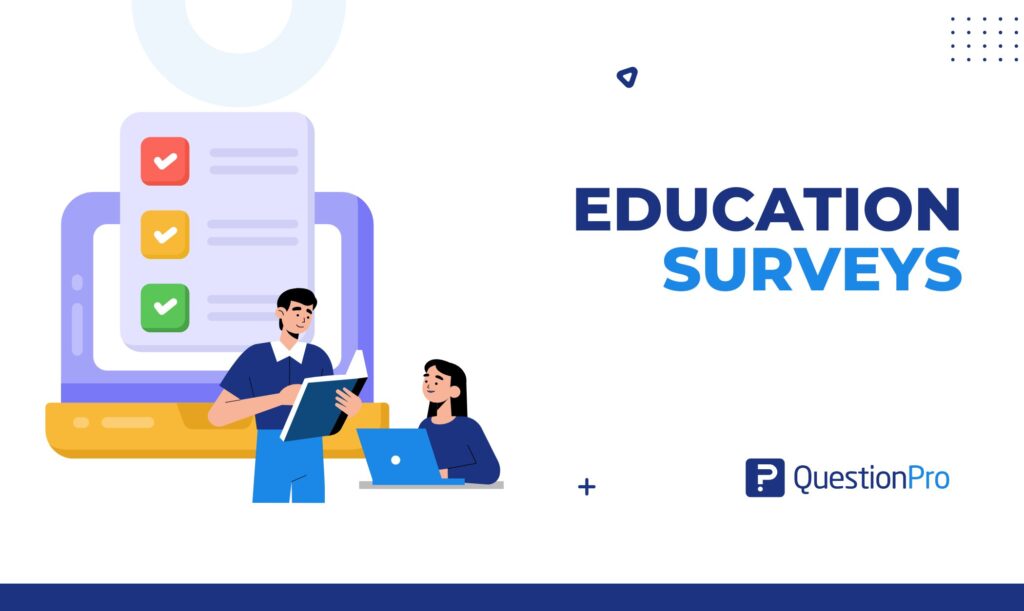
In today’s data-driven world, educational institutions must prioritize understanding the needs and experiences of their students, educators, and parents. Education surveys serve as powerful tools for gathering insights that can shape effective learning environments. By utilizing surveys effectively, schools can enhance their strategies and improve outcomes for all stakeholders.
What Are Education Surveys?
Education surveys are structured questionnaires designed to collect information about various aspects of the educational experience. They can target students, teachers, parents, and administrators, covering essential topics such as:
- Teaching quality
- Curriculum effectiveness
- Student satisfaction
- School climate
The insights gained from these surveys help educators and administrators understand what works well and what areas need improvement.
Why Take a Look at Education Surveys?
1. Understanding Student Needs
One of the most compelling reasons to take a look at education surveys is to gain insights into student needs. Surveys can uncover information about student engagement, learning preferences, and challenges faced in the classroom. Understanding these factors is essential for educators aiming to tailor their teaching methods to better serve their students.
2. Improving Teaching Practices
Education surveys provide valuable remarks on teaching practices and curriculum effectiveness. By studying student perceptions in their teaching methods, educators can identify strengths and areas for improvement. This statistics-driven approach lets in for non-stop refinement of coaching techniques, ultimately leading to an extra effective learning environment.
3. Enhancing Parental Involvement
Surveys that consist of parental remarks shed light on the level of parental involvement of their children’s training. Understanding dad and mom’ views on school regulations, verbal exchange, and educational practices can assist colleges foster stronger partnerships with families. This collaboration advantages college students and enhances their normal mastering experience.
4. Monitoring School Climate
High quality school weather is critical for student achievement. Education surveys can assess various dimensions of the faculty environment, consisting of safety, inclusivity, and student-instructor relationships. By monitoring these elements, faculties can identify areas wanting development and implement techniques to create a more supportive environment for studying.
5. Data-Driven Decision Making
Incorporating data from education surveys into selection-making methods permits faculties to prioritise tasks based on real needs as opposed to assumptions. Analyzing survey outcomes empowers instructional leaders to allocate assets effectively, develop targeted applications, and cope with issues that immediately impact scholar success.
The Role of SurveyPlanet in Education Surveys
When it comes to conducting education surveys, using a reliable platform is essential. SurveyPlanet is an online survey tool that simplifies the process of creating, distributing, and analyzing surveys. Here’s how it can assist educational institutions:
1. User-Friendly Interface
SurveyPlanet features an intuitive interface that makes it easy for educators to design surveys without needing advanced technical skills. Users can choose from various question types and customize their surveys to ensure they engage respondents effectively.
2. Customization Options
The platform allows extensive customization, enabling educators to tailor surveys to their specific needs. Whether crafting a brief questionnaire or a comprehensive evaluation, SurveyPlanet offers the flexibility to meet diverse requirements.
3. Distribution and Accessibility
SurveyPlanet provides multiple distribution options, making it easy to reach a broad audience. Educators can share surveys via email, social media, or through links on their websites, ensuring that a wider demographic can participate.
4. Data Analysis Tools
Once surveys are completed, SurveyPlanet offers robust analysis tools to help educators interpret the data. Users can view real-time results, generate reports, and visualize data through graphs and charts. This functionality enables schools to quickly assess feedback and make informed decisions based on the findings.
5. Cost-Effective Solutions
For educational institutions operating on tight budgets, SurveyPlanet offers free and affordable plans. This accessibility allows schools to conduct surveys without significant financial burdens, ensuring that even smaller institutions can benefit from data collection.
Best Practices for Conducting Education Surveys
To maximize the effectiveness of education surveys, consider the following best practices:
1. Clearly Define Objectives
Before launching a survey, it’s essential to establish clear objectives. Determine what information you hope to gain and how it will be used. This clarity will help in crafting targeted questions.
2. Keep Surveys Short and Focused
Long surveys can deter participation. Aim to keep surveys concise and focused on the most critical questions, enhancing the likelihood of obtaining meaningful responses.
3. Ensure Anonymity and Confidentiality
To encourage honest feedback, assure respondents that their answers will remain confidential. Anonymity can lead to more candid responses, providing more accurate data.
4. Follow Up with Respondents
After conducting a survey, share the results with participants. This transparency fosters trust and encourages future participation, as respondents feel their input is valued and acted upon.
5. Regularly Review and Update Surveys
Education is an evolving field. Regularly review and update surveys to reflect changing educational landscapes, ensuring that they remain relevant and effective.
Conclusion
Education surveys play a pivotal role in shaping the future of educational practices. By take a look at education surveys, institutions can gain critical insights into the needs and experiences of their stakeholders. With tools like SurveyPlanet, conducting these surveys becomes a seamless process, allowing educators to focus on what truly matters—improving the educational experience for students and fostering a positive learning environment. The power of data-driven decision-making can transform educational practices and ultimately lead to better outcomes for all involved.


